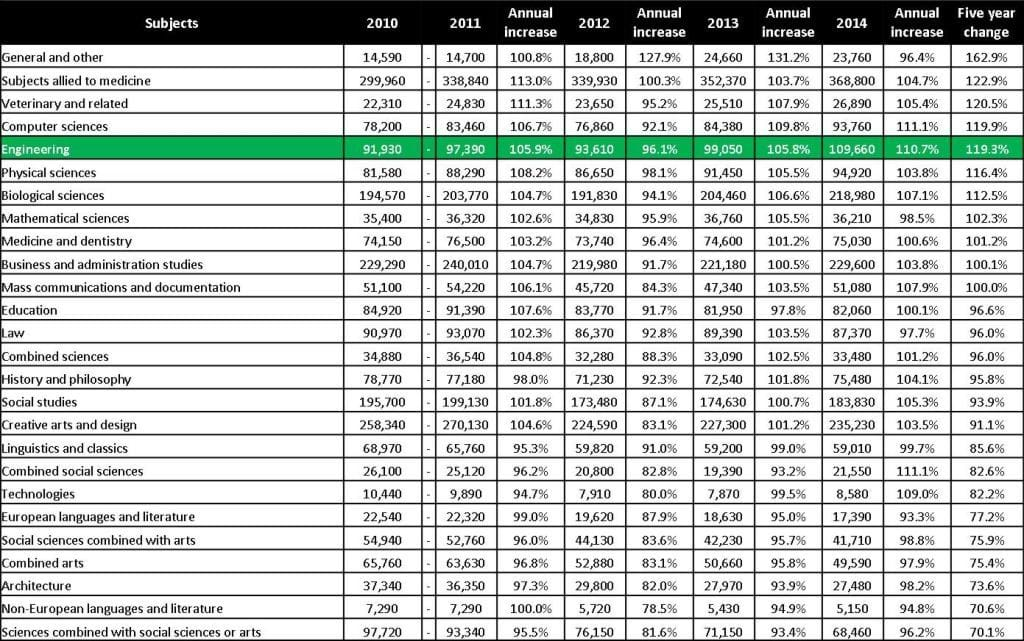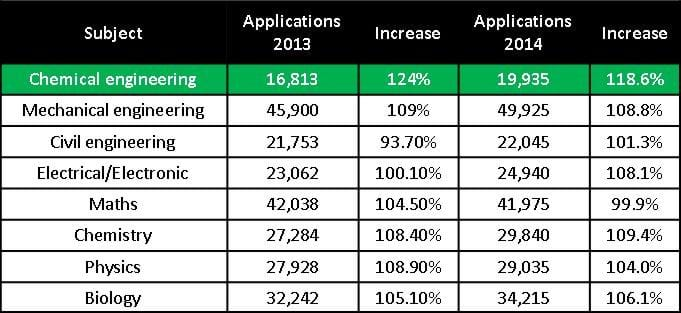The rise, rise and rise of chemical engineering (Day 54)

20th July 2014

It's an encouraging set of statistics following the decline in 2012 of eight per cent caused by the introduction of higher tuition fees in some parts of the UK.
There's also encouraging signs too that students from overseas wanting to study in the UK is picking up. Applications from European Union residents has increased by five per cent. Applications from outside of the UK has increased by six per cent.
But is the rude health of engineering and, in particular, the inexorable rise of chemical engineering that once again captures some of the biggest headlines.

Engineering is the sixth most popular subject group in the UK and applications have grown by nearly 20 per cent since 2010 - the fifth highest (Table 1).
Looking more closely at the applications for the sciences and engineering, the growth of chemical engineering becomes even more apparent, with growth figures of 24 per cent and 18.6 per cent in the past two years (Table 2).

There is also some encouraging news for the gender balance in the main engineering professions. Overall, the proportion of women applying increased from 13.5 per cent to 15.3 per cent. Chemical engineering continues to attract the highest proportion of women into the engineering professions at just over one in four (26 per cent).
Congratulations to everyone involved in these excellent figures, including members, universities and the IChemE team responsible for whynotchemeng.
We should remember though that it is estimated by the Royal Academy of Engineering that the UK needs over 100,000 new engineers, scientists and technologists each year, up to the end of the decade, to avoid skill shortages.
Let's keep promoting the engineering professions and the sciences to maintain the momentum we've achieved in recent years.